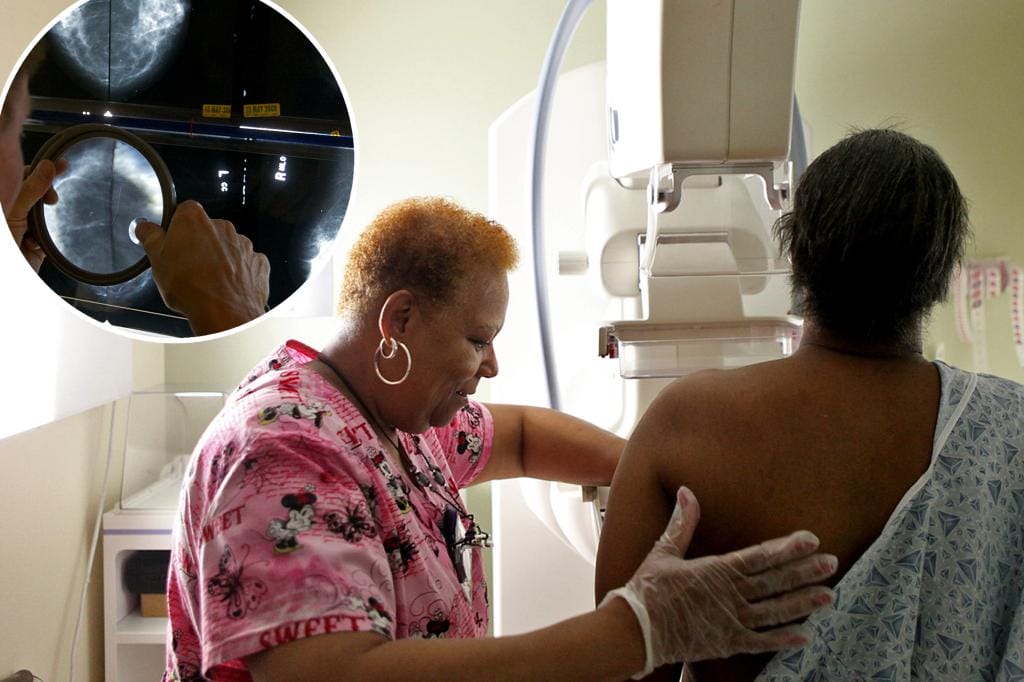In many countries, including the United States, annual mammograms are recommended indefinitely for breast cancer survivors, but a large British study finds that less frequent screening is just as good.
The goal of annual screening exams is to check to see if the cancer has returned. All of these tests cause anxiety for patients and cost money.
Until now, there was no solid evidence for when women could cut back on annual mammograms, said Janet Dunn of the University of Warwick, who led the study funded by the research arm of the U.K.’s National Health Service.
The study showed that less frequent mammograms are as good as an annual schedule for breast cancer survivors age 50 and older.
“It’s really about giving the ladies the go-ahead a little early, if possible,” Dunn said. The findings were discussed Friday at the San Antonio Breast Cancer Symposium. The unpublished study has not yet undergone full peer review.
The researchers followed more than 5,200 women. Participants were 50 years old or older and had undergone successful breast cancer surgery, mostly lumpectomies.
A breast cancer patient undergoes an exam at the Lurie Cancer Center’s Hispanic Breast Cancer Clinic at Northwestern Memorial Hospital in Chicago. TNS
After three years of annual screenings, half were randomly assigned to have mammograms every year and the other half to have mammograms less frequently.
Both groups did well, with remarkably similar results. Six years later, 95% of both groups were still cancer-free. Breast cancer survival was 98% in both groups.
“This is an eye-opening study,” said breast cancer specialist Dr. Laura Esserman of the University of California, San Francisco, who was not involved in the new study but is leading research on a personalized screening approach. “I think people will be very surprised.”
The new study is “very strong,” but more research will be needed to change U.S. guidelines, said Corinne Leach of the Moffitt Cancer Center in Tampa, Florida. She led the development of a 2015 US guideline requiring indefinite annual exams for these types of patients.
“One study alone typically doesn’t change the guidelines,” Leach said. “This study inspires other researchers to do more work in this area. And that is what could lead to change.”
In the new study, most women in both groups followed their assigned screening schedule. Some in the annual group were not screened and some in the less frequent group were screened earlier than planned. When the researchers analyzed the findings based on what the women actually did, the conclusions remained the same.
Survivors “can breathe easy” three years after surgery as they resume a less frequent mammogram schedule, Dunn said.
 A radiologist examines mammograms to detect breast cancer in Los Angeles. AP
A radiologist examines mammograms to detect breast cancer in Los Angeles. AP
The findings are likely to change practice in the UK and “will be influential globally”, he said.
How often is less frequent? In the study it depended on the type of surgery.
In the less frequent screening group, women who had had mastectomies had a mammogram once every three years. Those who had undergone lumpectomies, also called breast conservation surgery, had mammograms every two years.
The findings do not apply to younger breast cancer survivors, who were excluded from the study and tend to have more aggressive cancers. And women who have both breasts removed do not need mammograms.
“It’s time for us to have a more personalized approach to screening, not only for women who have never had breast cancer, but also for those who have had breast cancer,” Esserman said.
The Associated Press Health and Science Department receives support from the Howard Hughes Medical Institute’s Scientific and Educational Media Group. The AP is solely responsible for all content.
Categories: Trending
Source: vtt.edu.vn
